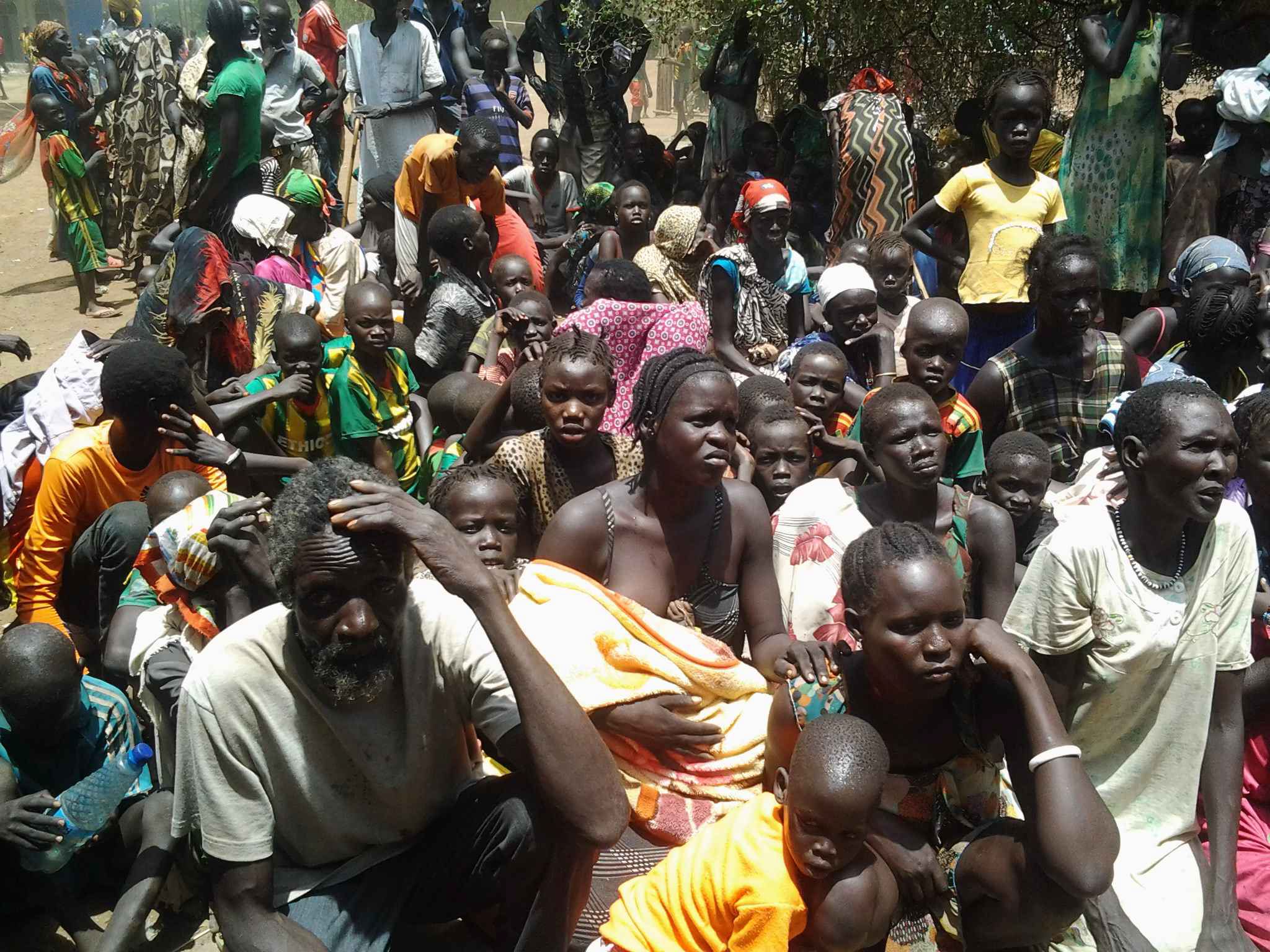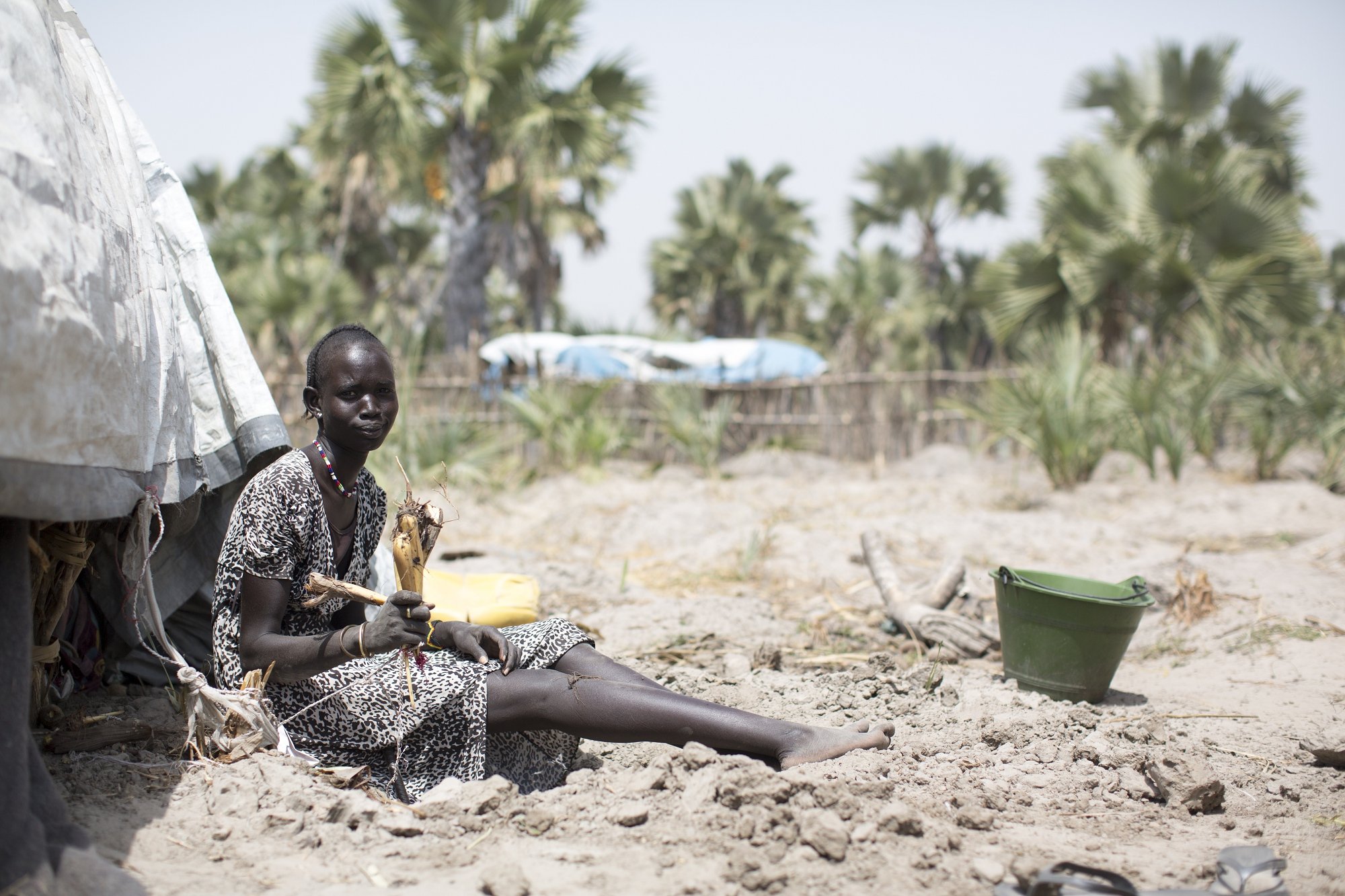UNHCR, WFP reassure Maban refugees over food shortage
UNHCR, WFP reassure Maban refugees over food shortage

MABAN COUNTY, South Sudan, June 2 (UNHCR) - Nadia Turimbil does not mince words: "In Blue Nile, my family and I fled from the Antonov. In Maban, the Antonov has become hunger."
The comparison is stark - equating fighter planes that forced her to flee her village in Sudan with the recent food shortages in South Sudan's Maban county, where she is an active and vocal member of the women's committee in Gendrassa refugee camp.
She was telling her story during a joint visit last week by UNHCR Representative for South Sudan Cosmas Chanda, and the World Food Programme's (WFP) country director, Michael Sackett. They had come to Maban in the north-east to engage with refugees and humanitarian agencies on the challenges in transporting food from the capital Juba and other locations amid insecurity in South Sudan.
Nadia pointed to a nearby group of children swatting flying ants, drawn out of the ground by recent rains. "That," she said to her rapt audience, "is what children are collecting to help supplement the little food we have available."
The current insecurity began last December and has affected tens of thousands of civilians, including some 126,000 Sudanese refugees in remote Maban. They have since February received insufficient quantities of food and this is affecting their health
The refugees received a seven-day ration in March, food for a 10-day period in April and a 20-day ration in May. During Wednesday's meeting with refugee leaders from the four Maban camps - Doro, Kaya, Yusuf Batil and Gendrassa - WFP assured them that it would try its utmost to provide a full 30-day food ration in June.
"Although talks to resolve the problems the country faces are under way in Ethiopia, the logistical challenges of transporting food and other humanitarian supplies in an insecure environment have severely affected the timely delivery of food and other essential items," said Chanda. "Nonetheless, WFP continues to look into ways to ensure food delivery to Maban."
Sackett said WFP was adopting a multi-pronged approach to getting food to Maban. This included the use of cargo aircraft to transport food from WFP's stockpiles in Ethiopia and from Juba. With more peaceful conditions prevailing, it had proved possible to make truck deliveries of sorghum from Renk and Melut County.
WFP is currently loading its first Nile River barge convoy in Juba which is able to deliver large volumes of food at lower cost. Finally, WFP is at an advanced stage of discussions with the government of Sudan to restore cross-border movement of humanitarian cargoes.
At the same time, UNHCR and other humanitarian agencies are exploring the possibility of refugees growing their own food. Through Maban's county commissioner, refugees in Kaya camp have acquired a little over five square kilometres of land to begin farming.
UNHCR is also making progress in finalizing with the host community and local authorities the designation of land for agricultural activities in Gendrassa, Doro and Yusuf Batil camps, where the neighbouring host community has generously given refugees more than eight square kilometres of nearby land.
Through humanitarian agencies, UNHCR has acquired more than 45 tonnes of seeds which will be given to refugees during the food distribution exercise scheduled for next week. "This is to ensure that refugees plant the seeds and not eat them to make up for the food shortage," said Chanda.
As part of its annual provision of non-food supplies before seasonal rains intensify, UNHCR will also distribute fleece blankets, sleeping mats, jerry cans, buckets, mosquito nets, plastic sheets and soap right after food distribution, so that refugees will not be tempted to sell the items in order to purchase food.
UNHCR's Chanda is hopeful that with WFP's assurances for June's food distribution, refugees will use the seeds and non-food items as intended. "A lot is riding on the provision of food," he said. "In as much as we appreciate and support WFP in its efforts to turn this situation around, it was very important to meet with refugees jointly, and for them to explain to us, first hand, what their concerns are because we will continue working on this issue until the 30-day ration is restored."
These words have given Nadia some relief: "All we can do now is pray and hope for peace in this country and an end to the suffering and hardship everyone is going through."
By Pumla Rulashe in Maban county, South Sudan








